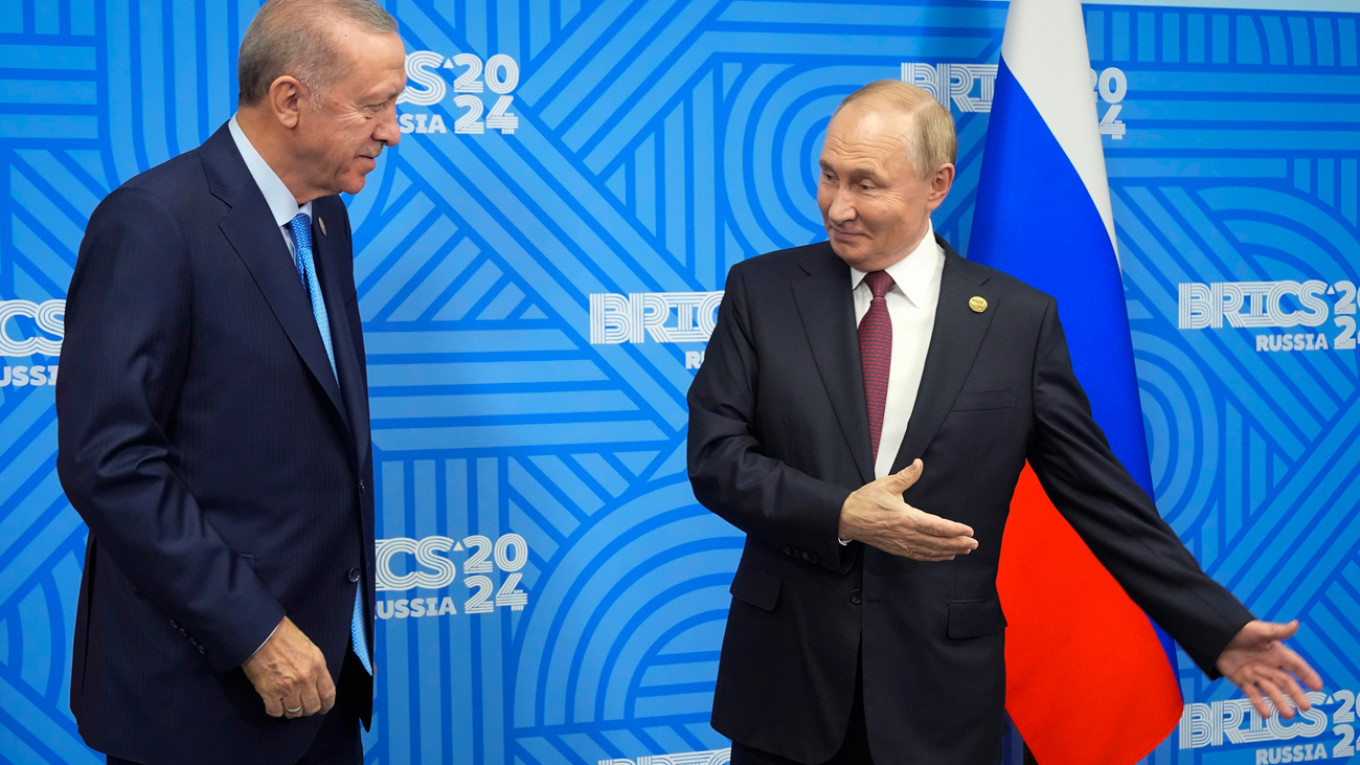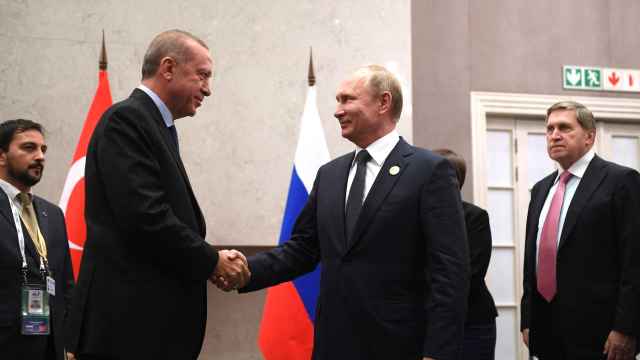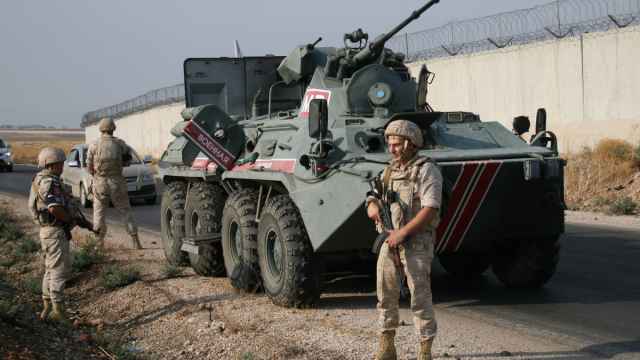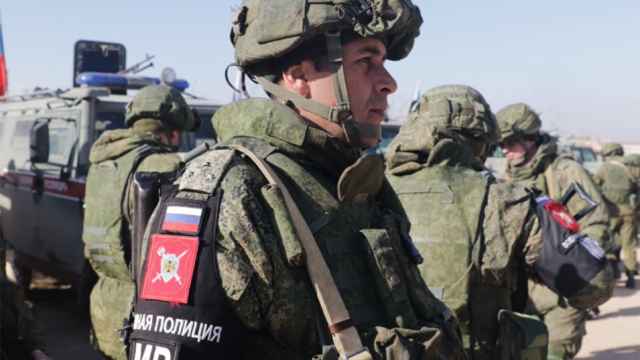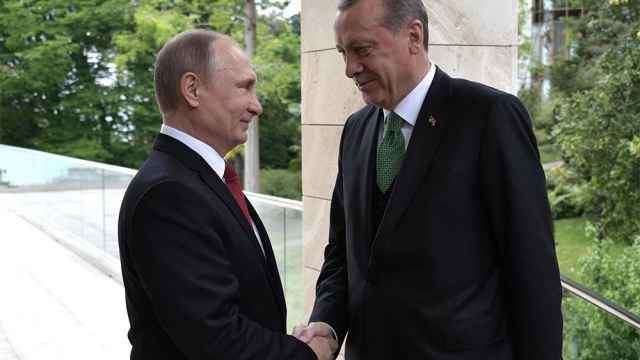Turkish President Recep Tayyip Erdogan told Russian President Vladimir Putin that cooperation between their two countries is crucial for resolving regional conflicts, his office said Friday.
"Cooperation between Turkey and Russia is of key importance in resolving regional issues," Erdogan said after discussions that covered the Ukraine war and the situation in Syria.
The two leaders also spoke about security in the Black Sea, with Erdogan pledging that Ankara would take steps to ensure "the safety of commercial navigation," which he said would contribute to broader peace efforts.
The Kremlin confirmed that the talks included "the resumption of the Black Sea initiative for safe navigation and the removal of obstacles to the export of Russian food and fertilizers."
The initiative, brokered by Turkey and the UN in 2022, was designed to guarantee the safe export of Ukrainian agricultural products via the Black Sea. However, Moscow withdrew from the deal in 2023, accusing the West of failing to lift sanctions it said were hampering its own agricultural and fertilizer exports.
The call between Erdogan and Putin came a day after European leaders agreed to ramp up sanctions on Russia over its war in Ukraine. The United States has separately pursued its own diplomatic initiative through direct talks with Moscow.
"Turkey is closely following the process initiated to end the ongoing war between Russia and Ukraine, and is ready to provide all kinds of support, including hosting peace negotiations," Erdogan told Putin.
Turkey, a NATO member, has sought to maintain good relations with both Ukraine and Russia since the 2022 invasion. Ankara has twice hosted talks aimed at ending the war.
Erdogan also said in the Friday phone call with Putin that it was "important for Turkey and Russia to work together to ensure that Syria achieves lasting peace and stability."
Russia was a key backer of Syria's recently deposed leader Bashar al-Assad, offering military support during the country's civil war, while Turkish-backed rebel forces opposed him.
Moscow has since sought to strengthen ties with the new administration in Damascus, in particular, to hold on to its military bases in Syria.
A Message from The Moscow Times:
Dear readers,
We are facing unprecedented challenges. Russia's Prosecutor General's Office has designated The Moscow Times as an "undesirable" organization, criminalizing our work and putting our staff at risk of prosecution. This follows our earlier unjust labeling as a "foreign agent."
These actions are direct attempts to silence independent journalism in Russia. The authorities claim our work "discredits the decisions of the Russian leadership." We see things differently: we strive to provide accurate, unbiased reporting on Russia.
We, the journalists of The Moscow Times, refuse to be silenced. But to continue our work, we need your help.
Your support, no matter how small, makes a world of difference. If you can, please support us monthly starting from just $2. It's quick to set up, and every contribution makes a significant impact.
By supporting The Moscow Times, you're defending open, independent journalism in the face of repression. Thank you for standing with us.
Remind me later.


